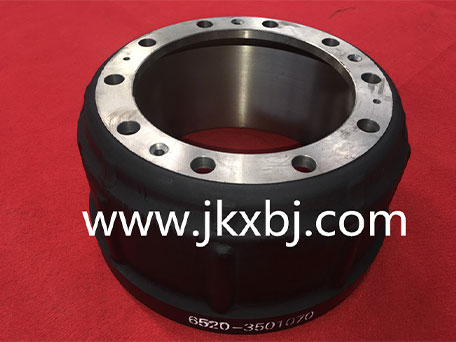

types of hexagonal nuts
พ.ย. . 11, 2024 23:11 Back to list
types of hexagonal nuts
Understanding the Various Types of Hexagonal Nuts
Hexagonal nuts are a fundamental component in many mechanical assemblies, providing a secure connection for fasteners. With their unique shape and versatile applications, they are widely used in construction, manufacturing, and various industries. This article delves into the different types of hexagonal nuts, their characteristics, applications, and how to choose the right one for your project.
What are Hexagonal Nuts?
Hexagonal nuts are fasteners with a hexagonal shape, typically made of metal or plastic. Their six-sided form allows for easy gripping and tightening with a wrench or socket. They work in conjunction with bolts or screws to create a strong, reliable joint in various structures, from furniture to heavy machinery.
Types of Hexagonal Nuts
1. Standard Hex Nuts These are the most commonly used hexagonal nuts. Made of various materials, including steel and stainless steel, they are available in multiple sizes and grades. Standard hex nuts are used in a wide range of applications for fastening two or more components together securely.
2. Castle Nuts Also known as slotted nuts, castle nuts feature a unique design with slots across the top. These slots allow for a pin or cotter pin to be inserted, preventing the nut from loosening under vibrations. Castle nuts are commonly used in automotive and machinery applications where safety is a concern.
3. Lock Nuts Lock nuts are specially designed to resist loosening due to vibration. They come in various forms, including nylon lock nuts and serrated flange nuts. Nylon lock nuts have a nylon insert that grips the bolt threads, while serrated flange nuts have a serrated surface that provides additional friction against the mating surface, ensuring a secure fit.
4. Flange Nuts These nuts are similar to standard hex nuts but include a wider base with a built-in flange. The flanged design distributes the load over a larger area, reducing the risk of damage to the surface material. Flange nuts are ideal for use in applications where a flat bearing surface is needed.
5. Heavy Hex Nuts As the name suggests, heavy hex nuts are thicker than standard hex nuts, allowing them to withstand greater loads. They are often used in high-stress applications, such as structural steel connections and heavy machinery.
6. Coupling Nuts Coupling nuts are elongated hex nuts designed to connect two pieces of threaded rod or bolt together. They provide a secure connection for longer spans or when extending reach.
types of hexagonal nuts

7. Square Nuts While not hexagonal, square nuts deserve mention due to their use in specific applications. They provide a larger bearing surface, making them useful in situations where the nut will be subject to high loads.
Materials Used for Hexagonal Nuts
Hexagonal nuts are made from a variety of materials depending on their application. Common materials include
- Carbon Steel Often used for general purposes, carbon steel nuts provide good strength at a low cost. - Stainless Steel Ideal for applications requiring corrosion resistance, stainless steel nuts are commonly used in outdoor settings or industries like food processing. - Alloy Steel When high strength is needed, alloy steel nuts are preferred for their superior mechanical properties.
- Plastic For lightweight applications or where electrical insulation is necessary, plastic hex nuts are available. They are non-conductive and resistant to corrosion.
Choosing the Right Hexagonal Nut
When selecting a hexagonal nut for your project, consider the following factors
- Material Compatibility Ensure the nut material is compatible with the bolt and the environment in which it will be used. - Load Requirements Assess the load and stress conditions to determine if a standard or heavy hex nut is appropriate. - Environmental Conditions If the application will expose the fasteners to moisture or corrosive materials, choose materials like stainless steel or coated options. - Ease of Installation Some nut types, like lock nuts, may require more effort to install but provide better performance under vibration.
Conclusion
In conclusion, hexagonal nuts are an essential component in countless applications across various industries. Understanding the different types, materials, and selection criteria of hexagonal nuts can greatly impact the performance and reliability of your assembly. Whether you need a standard hex nut for general fastening or a specialized lock nut for vibration resistance, there's a type available to meet your specific needs.
Latest news
-
Hot Dip Galvanized Bolts-About LongZe|High Strength, Corrosion Resistance
NewsJul.30,2025
-
High-Strength Hot Dip Galvanized Bolts - Hebei Longze | Corrosion Resistance, Customization
NewsJul.30,2025
-
Hot Dip Galvanized Bolts-Hebei Longze|Corrosion Resistance&High Strength
NewsJul.30,2025
-
High-Strength Hot-Dip Galvanized Bolts-Hebei Longze|Corrosion Resistance&High Strength
NewsJul.30,2025
-
Hot Dip Galvanized Bolts-Hebei Longze|Corrosion Resistance&High Strength
NewsJul.30,2025
-
Hot Dip Galvanized Bolts - Hebei Longze | Corrosion Resistance, High Strength
NewsJul.30,2025

